Does cat litter expire?
While most cat litter doesn’t come with a clear expiration date, it doesn’t last forever either.
Over time, litter can lose its ability to control odor, absorb moisture, and form proper clumps, especially if it’s stored incorrectly or left unused for long periods.
How long cat litter lasts depends on the type of litter, whether the bag is opened or unopened, and storage conditions.
In this guide, we’ll explain how long different cat litters last, signs that your litter has gone bad, and when it’s time to replace it to keep your cat’s litter box clean and comfortable.
Quick Answer: Kitty litter doesn’t always have a fixed expiration date, but it can lose effectiveness over time. Most unopened litters last for years, while opened litter may degrade faster if exposed to moisture or poor storage conditions.
What is a Cat Litter?
Cat litter is considered an indispensable item for cat owners. It helps keep the litter box clean, hygienic, and comfortable for both cats and their owners.
Now, kitty litter comes in different types, such as clay, silica crystals, and biodegradable materials like wood, paper, or corn.
Moreover, each type works slightly differently, but the main purpose is to absorb urine and waste, keeping the litter box virtually odorless.
Does Kitty Litter Expire?
Yes, kitty litter can expire, even though most brands don’t list a clear expiration date.
Over time, litter can lose its ability to absorb moisture, control odor, and form solid clumps, especially when exposed to humidity or poor storage conditions.
Unopened cat litter can last for years, but once opened, its effectiveness may decline much faster.
Using old or degraded litter often results in stronger odors and a less comfortable litter box for your cat.
What are Some of the Signs of Expired Kitty Litter?
Your cat litter may have expired if you notice these things:
1. Strong Scent
Outdated cat litter can have a peculiar smell, different from the typical fragrance of your kitty litter. The scent can be caused by microorganisms or the breakdown of litter debris.
2. Clumping Problems
Expired clumping litter may no longer clump as nicely as it did previously. This might be caused by the moisture-absorbing chemicals in the litter losing their efficacy.
3. Shift in Color
When certain litters reach the end of their life, their color may change. For example, mold growth may cause natural litter containing wood shavings to turn dark or black.
4. Moisture
If your cat litter appears wet or moist, it might have expired. Moisture can promote bacterial growth and reduce the litter’s absorbency.
How to Store the Cat Litter?
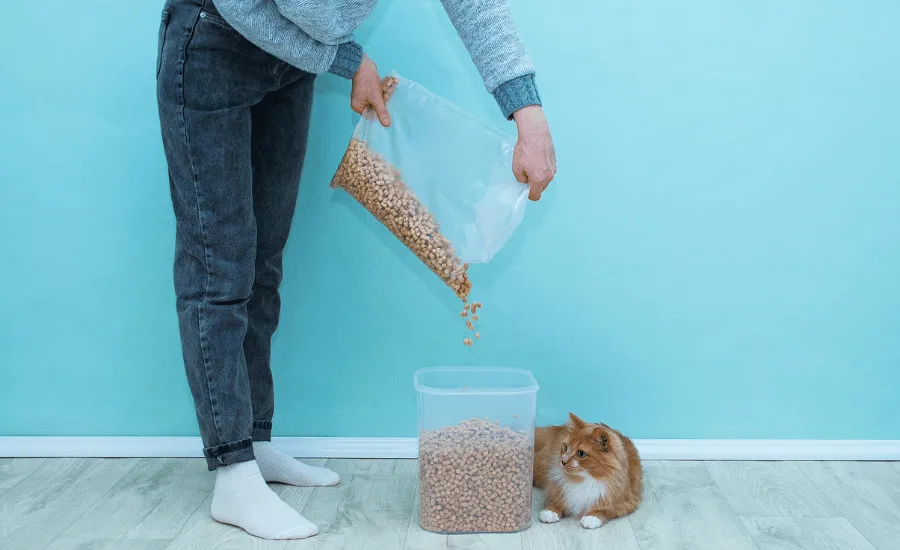
Want your cat litter to last longer? Store it wisely. Here are a few tips:
1. Keeping it Dry
Moisture is a foe of cat litter. Keep your litter dry, away from humidity, in a pantry or closet. Avoid storing it in wet environments such as basements or garages.
2. Tightly Sealed
After opening a bag of kitty litter, seal it tightly to prevent any bacteria or moisture from getting in.
3. Use it Before the Expiry Date
Check the expiry date on the cat litter pack and ensure you use it before it expires. Expired litter can cause issues with scent, clumping, and even health.
4. Consider Buying Smaller Quantities
Consider purchasing kitty litter in smaller quantities if you have a small cat or a single cat. This ensures you use the litter before it expires, reducing waste.
Proper storage is essential for the durability and effectiveness of kitty litter. Store it in a cool, dry location, away from moisture and direct light, as these may affect its quality.
After each use, seal the bag tightly to maintain freshness and minimize spillage, creating a clean, odor-free environment for you and your feline.
How Long Can You Leave Waste in the Litterbox?
Health practitioners suggest you scoop the clumping clay waste daily to help remove it and keep the room smelling fresh.
Even though you scoop daily, changing the litter occasionally will help prevent bad smells and bacterial growth over time.
How often you should change a cat’s litter depends on factors such as how many cats share the litter box, the type of litter used, and where the box is situated.
Remember that a filthy litter box can cause behavioral issues, such as cats avoiding the box and possibly developing house-soiling behaviors.
In extreme cases, prolonged waste retention might lead to health problems, such as urinary tract infections or megacolon.
As a result, keeping the litter box clean is an essential part of pet care that goes beyond just cleanliness.
Note: Storage conditions and litter formulations may change over time, so it’s always best to check the manufacturer’s recommendations.
Conclusion
Kitty litter may not always come with a printed expiration date, but it doesn’t last forever.
Over time, its ability to absorb moisture, control odor, and clump effectively can decline, especially if it’s stored improperly.
To make your litter last longer, keep it in a dry, airtight container and away from heat or humidity. If you notice strong odors, poor clumping, dampness, or changes in texture, it’s a clear sign that the litter should be replaced.
Using fresh, well-stored litter helps keep your cat’s litter box clean and keeps your cat comfortable and stress-free.
Regularly checking and replacing old litter is a simple habit that makes a big difference in your cat’s hygiene and overall well-being.
FAQ’s?
Is it okay to use expired cat litter?
It’s generally not recommended. Expired cat litter may lose odor control and clumping ability, leading to poor hygiene and discomfort for your cat. If it smells off, feels damp, or doesn’t clump well, it’s best to replace it.
Is it safe to sleep in a room with cat litter?
Yes, it’s completely safe if the litter box is kept clean and well-ventilated. However, a dirty litter box can release odors, dust, and bacteria, which may cause discomfort or breathing issues over time.
What should I do with old cat litter?
Old cat litter should be sealed in a bag and disposed of in the household trash. Do not flush it down the toilet, as it can cause plumbing issues and environmental problems.
How long can unopened cat litter last?
Unopened cat litter can last 1 to 7 years, depending on the type and storage conditions. Clay and silica litter last longer when kept dry, while biodegradable litters have a shorter shelf life.
Is scented litter more likely to lose effectiveness?
Yes, scented litter can lose effectiveness more quickly as the added fragrances fade. Once the scent wears off, odor control may drop, even if the litter still looks usable.

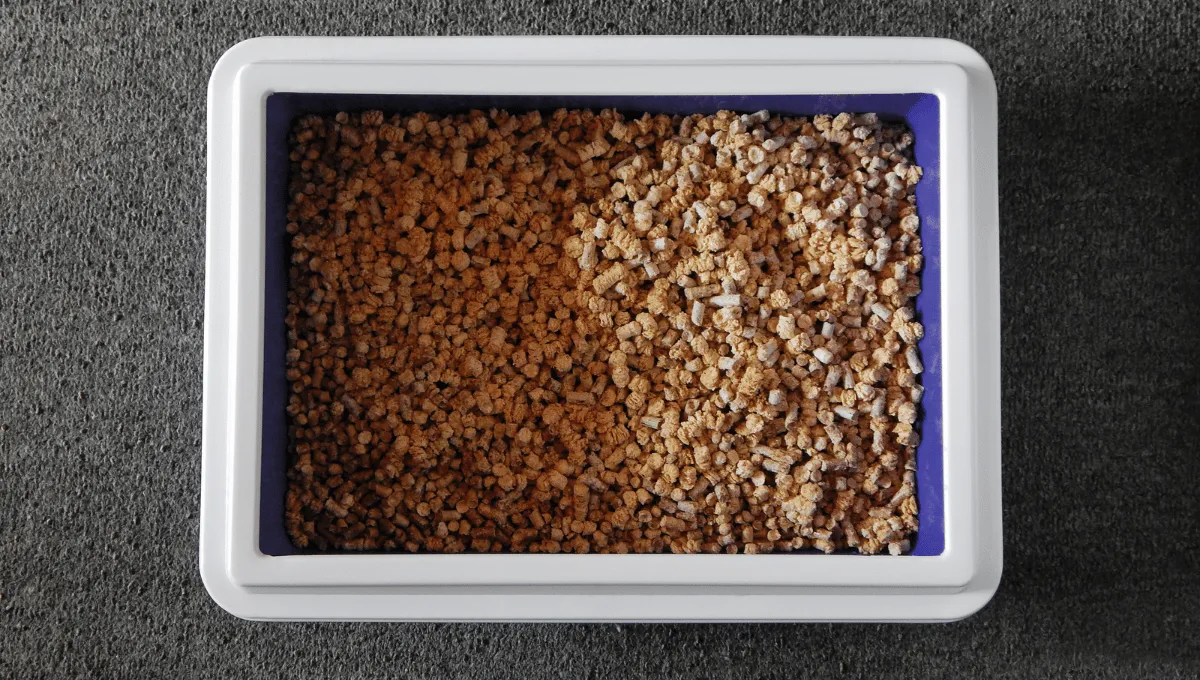

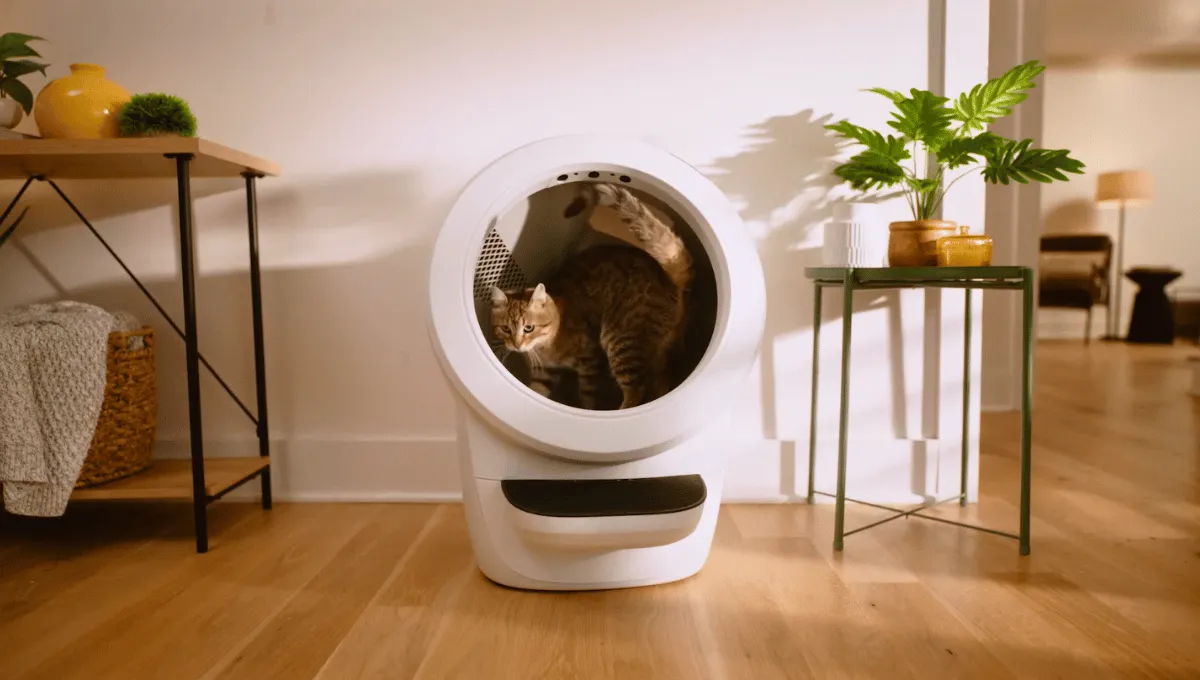
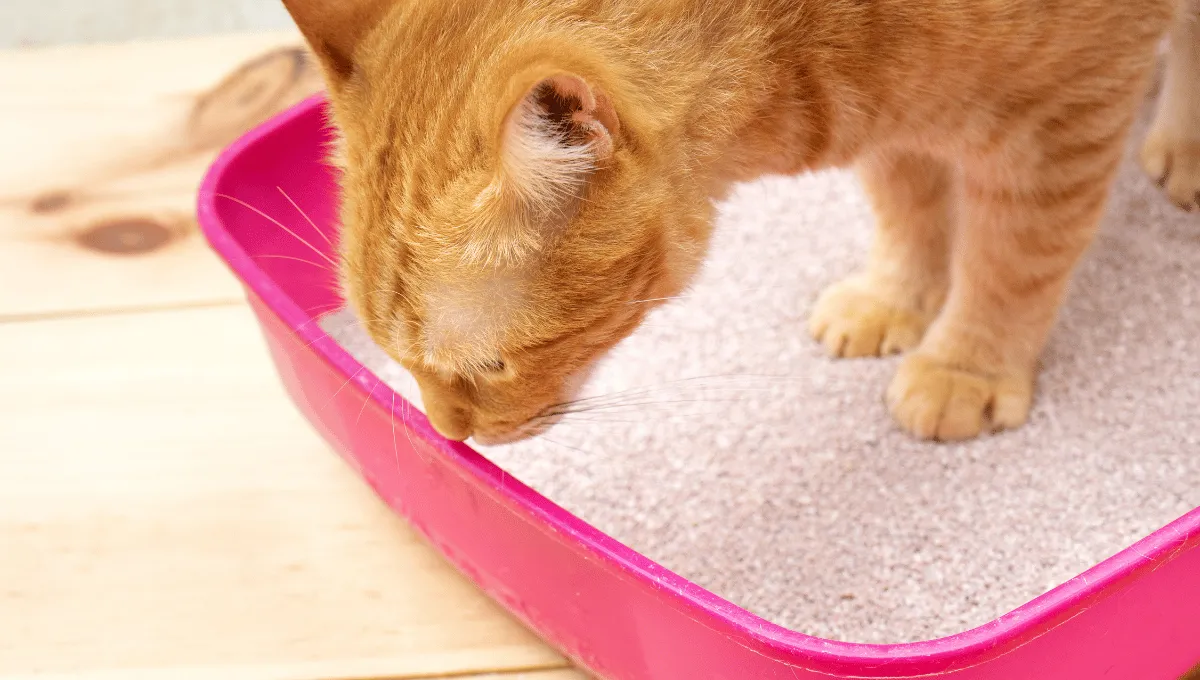
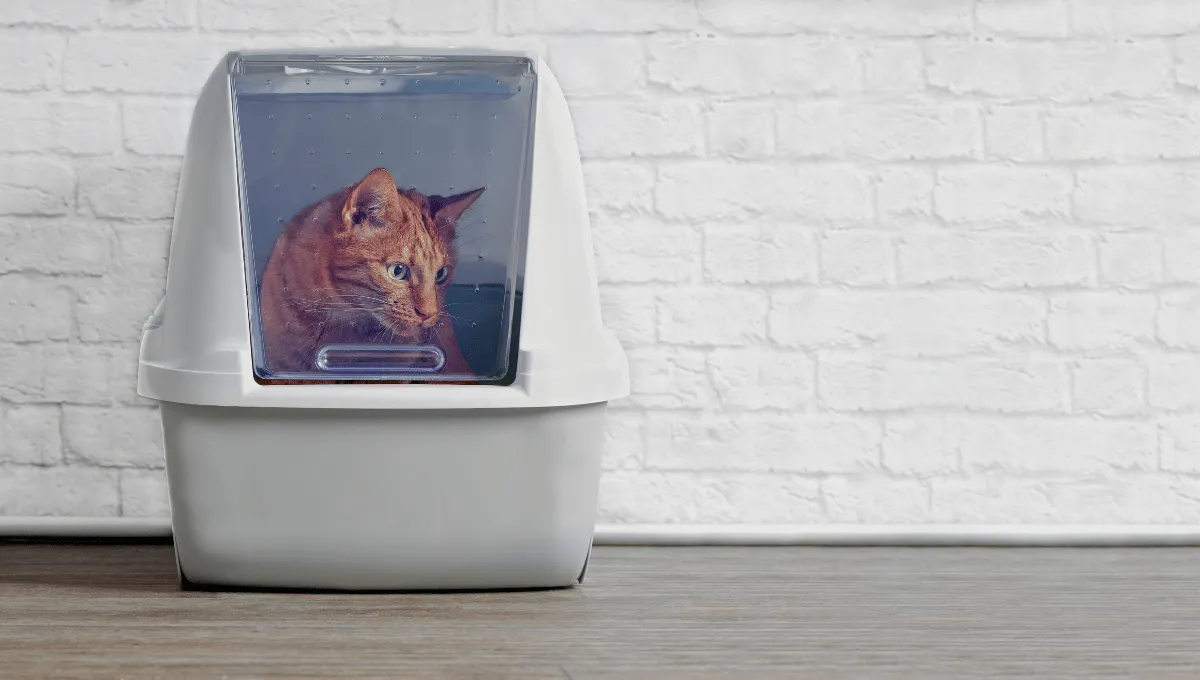
0 Comments